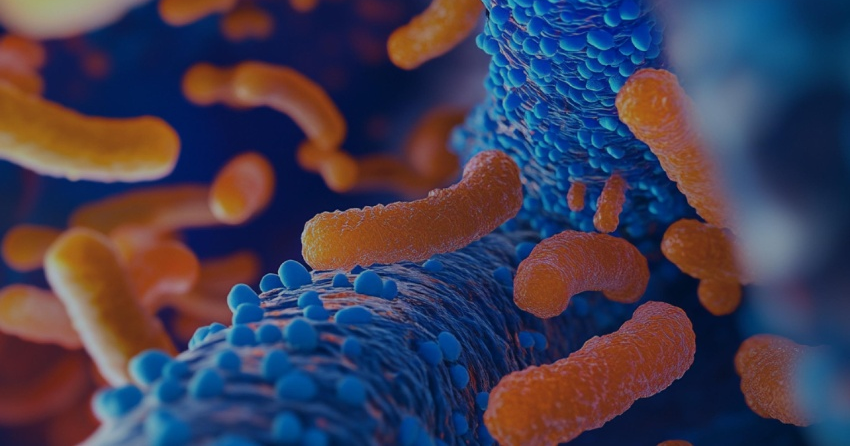Is Resveratrol a Prebiotic? What to Know about Resveratrol’s Potential Impact on the Gut Microbiome

Grapes and dark berries have been used for thousands of years and in cultures all around the world to support health and longevity. Resveratrol, a molecule found in grape skin and dark berries, could be a major reason why. Resveratrol is a bioactive compound with extensive clinical research supporting its role in enhancing the body's antioxidative status and promoting cellular health.* But can it also help support gut microbial health?
Prebiotics are compounds that help stimulate the activity of the gut microbiome. Emerging evidence suggests that polyphenolic compounds like resveratrol may act as prebiotics to support certain aspects of gut microbial activity. In addition, theoretical models have postulated that polyphenols may help maintain healthy intestinal permeability.
Resveratrol has a strong relationship with the gut; approximately 80% of resveratrol is absorbed in the intestine before its metabolism in the liver. Gut bacteria are thought to help metabolize polyphenols and potentially help increase their bioavailability. This is important in resveratrol’s story because, while 80% of resveratrol is absorbed, it’s thought that only 1% is bioavailable. Therefore, resveratrol may have a mutually beneficial relationship with the gut microbiome.
In and beyond the gut, resveratrol may influence pathways related to cell signaling and healthy cell cycles. It helps activate sirtuin 1 (SIRT1) to support cell survival, metabolic health, and stress resilience. Resveratrol has also been shown to influence nuclear factor-kappa B (NF-kB) activity. It has also been shown to influence vascular health, cognitive function, and many other aspects of human health.
In the clinical setting, an 8-week study examining a diet rich in polyphenol-containing foods reported improvements in circulating zonulin levels (an indicator of leaky gut), suggesting a potential effect of polyphenols (including resveratrol) on intestinal permeability in elderly populations. More research is needed, however, before clinical conclusions can be made.
Why is this important to the conversation of longevity?
Dysbiosis is one of the key hallmarks of aging. It is considered an “integrative” hallmark of aging that influences the entire meta-organism. Dysbiosis has been linked to the decrease of microbial diversity, bile acids, and short-chain fatty acids and is thought to influence the etiologies of many age-related changes in the body. In their seminal 2023 work on the hallmarks of aging, López-Otín et al. describe microbial homeostasis as “prolongevity” due to its influence on nutrient absorption, the production of essential metabolites, and signaling to the brain and other organs.
While evidence is still emerging and clinical conclusions cannot yet be made, research suggests that resveratrol may have a prebiotic-like effect and support many dimensions of gut health and longevity.
By Dr. Cory Ambrose, ND, MAT
*These statements have not been evaluated by the Food and Drug Administration. These products are not intended to screen, diagnose, treat, cure, or prevent any disease or condition or assess risk of any disease or condition. Unless advised by your healthcare professional, biological age should not be used to determine or alter any age-related health or medical treatments based on your chronological age.





